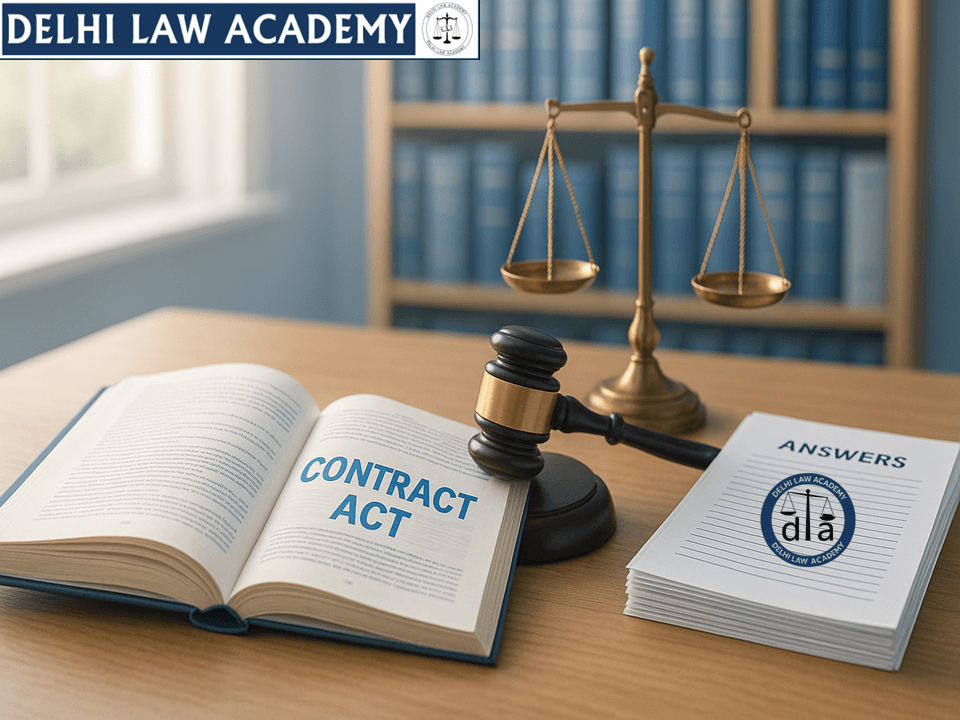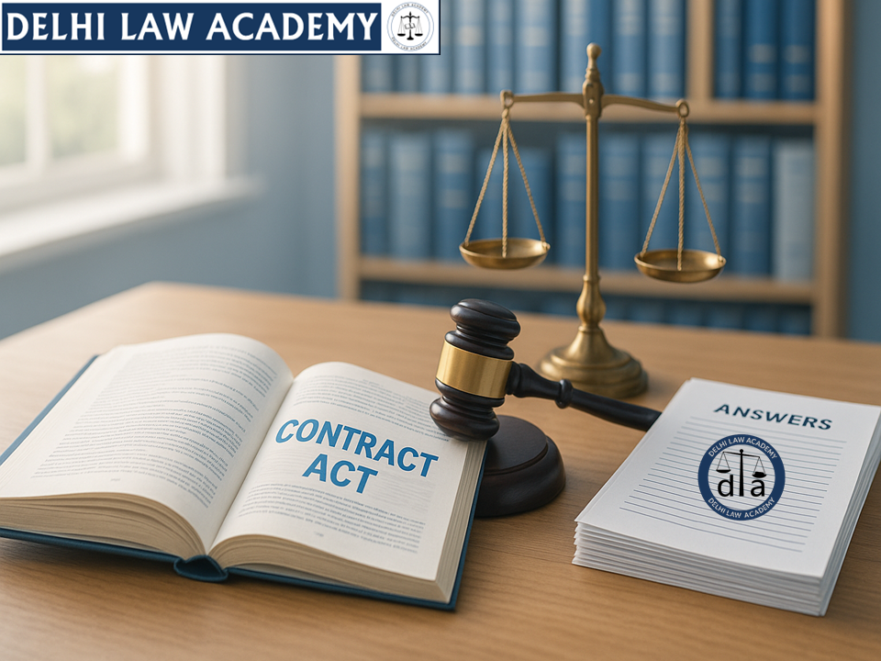
✅ Acceptance must be absolute – Section 7
In order to convert a proposal into a promise:
- Acceptance must be absolute and unqualified
- Acceptance must be in the manner prescribed in the proposal
If no manner prescribed:
- Acceptance must be expressed in some usual and reasonable manner
If proposal prescribes a manner for acceptance, but acceptance is not made in such manner, proposer may within a reasonable time after acceptance is communicated to him insist that his proposal shall be accepted in prescribed manner, and not otherwise, but; if he fails to do so, he accepts the acceptance.
📄 Acceptance by performing conditions – Section 8
- Performance of conditions of proposal
- is an acceptance of the proposal
⚖️ Carlill v. Carbolic Smoke Ball Co. 1893
Advertisement published by the defendants On Nov. 13, 1891:
“£ 100 reward will be paid by the Carbolic Smoke Ball Co. to any person who contracts Influenza after having used the ball three times daily for two weeks according to printed directions.”
Facts:
Thus, the Carbolic Smoke Ball company offered compensation to anybody who, having used the carbolic smoke ball for a certain length of time in a prescribed manner, contracted influenza. The plaintiff Carlill used it as per the prescription, but, nevertheless, contracted influenza. She sued the Carbolic Smoke Ball Co. for compensation.
Case of the defendants:
It is a promise that is not binding. It is not made with anybody in particular.
Court response:
The offer is to anybody who performs the conditions named in the advertisement. Anybody who does perform the conditions accepts the offer.
Court decision:
“Where a person in an offer made by him to another, expressly or impliedly intimates a particular mode of acceptance as sufficient to make the bargain binding, it is only necessary for the other person to follow the indicated method of acceptance. If the person making the offer, expressly or impliedly intimates in his offer that it will be sufficient to act on the proposal without communicating acceptance of it to himself, performance of the condition is a sufficient acceptance without notification.”
📌 Promise, express and implied – Section 9
Express promise:
- Where proposal or acceptance of a promise is made in words
Implied promise:
- Where proposal or acceptance is made otherwise than in words
✅ What agreements are contracts – Section 10
An agreement is a contract if:
- Made by free consent of parties
- By parties competent to contract
- For a lawful consideration
- With a lawful object
- Not expressly declared void by this Act
Section 10 shall not affect:
- Any law requiring a contract to be made in writing or in presence of witnesses
- Any law relating to registration of documents
👤 Who are competent to contract – Section 11
- Every person is competent to contract
- Who is of the age of majority
- Who is of sound mind
- Who is not disqualified by law from contracting
Effect of Section 11:
- A minor is not competent to contract.
- A person of unsound mind is not competent to contract.
When a minor enters into an agreement with another person, what is the status of such agreement?
It is not a contract because section 11 says so.
Two more options: Is it void or is it a voidable contract?
⚖️ Mohori Beebi v. Dhurmodas Ghose 1903 PC
Facts of the case:
On July 20, 1895, a minor, Dharmodas Ghose, executed a mortgage in favour of Brahmo Dutt, a money-lender, to secure repayment of Rs. 20,000 at 12 per cent interest on some houses belonging to the minor.
On the day on which the mortgage was executed, the minor signed a long declaration containing a statement that he had come of age.
On September 10, 1895, the minor, by his mother and guardian as next friend, commenced this action against Brahmo Dutt, stating that he was under age when he executed the mortgage, and praying for a declaration that it was void and inoperative, and should be delivered up to be cancelled.
Defence:
Defence put up by Brahmo Dutt:
- The plaintiff was of full age when he executed the mortgage; neither he nor Kedar Nath had any notice that the plaintiff was then a minor, even if he was a minor, the declaration as to his age was fraudulently made to deceive the defendant, and disentitled the plaintiff to any relief; and in any case the Court should not grant the plaintiff any relief without making him repay the moneys advanced.
- The appellants’ counsel contended that the plaintiff is estopped by s. 115 of the Indian Evidence Act from setting up that he was an infant when he executed the mortgage.
Other facts:
While considering the proposed advance, Kedar Nath, attorney of Brahmo Dutt, received information that the respondent was still a minor. Kedar Nath positively denied the receipt of any such letter; but the Court of first instance and the Appellate Court both held that he did personally receive it on July 15.
Both Courts below have held that Kedar Nath did not act upon, and was not misled by, that statement, and was fully aware at the time the mortgage was executed of the minority of the respondent.
Privy Council:
Their Lordships consider it clear that the section does not apply to a case like the present, where the statement relied upon is made to a person who knows the real facts and is not misled by the untrue statement. There can be no estoppel where the truth of the matter is known to both parties. A false representation, made to a person who knows it to be false, is not such a fraud as to take away the privilege of infancy.
The same principle is recognised in Explanation to s. 19 of the Contract Act: A fraud or misrepresentation which did not cause the consent to a contract of the party on whom such fraud was practised, or to whom such misrepresentation was made, does not render a contract voidable.
Defence:
Courts ought not to have decreed in the respondent’s favour without ordering him to repay to the appellants the sum of Rs. 10,500, said to have been paid to him as part of the consideration for the mortgage.
📌 Applicability of Section 64
Question:
- Whether this was a voidable contract within the meaning of section 64
Ans:
- The question whether a contract is void or voidable presupposes existence of a contract within the meaning of the Act and cannot arise in the case of an infant
📌 Applicability of Section 65
Question:
- Whether section 65 was applicable?
Ans:
- Section 65, like s. 64, starts from the basis of there being an agreement or contract between competent parties and has no application to a case in which there never was, and never could have been, any contract
📚 Continue Your Contract Act Preparation
Don’t stop here! Strengthen your knowledge of the Contract Act with our other fully solved tests:
📘 Free Study Material for Judiciary Aspirants!
Download our FREE study material prepared by Delhi Law Academy’s expert faculty.
❓ Frequently Asked Questions
Contact us
📍 Delhi Law Academy – Jaipur Branch
6C, Tower 2, Coaching Hub, Pratap Nagar, Jaipur – 302033
📞 Phone:
+91 9911916552
+91 8447285606
✉️ Email:
contactus@delhilawacademy.com

